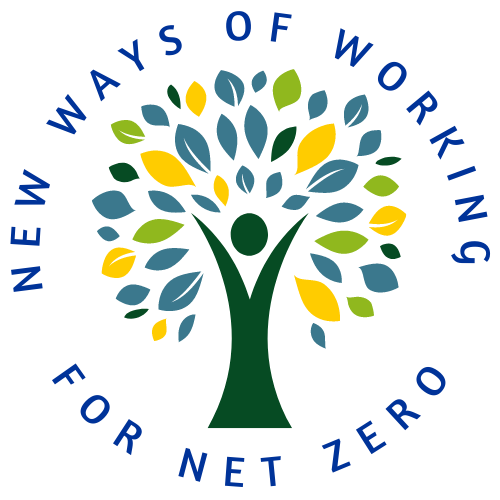VINCENT COURBOULAY
Co-founder and scientific director of Institut du Numérique Responsable, a French association established in 2018 which brings together companies and organisations that share and promote experiences for an environmentally friendly, inclusive, supportive and ethical digital world. Vincent Courboulay is also a lecturer and in charge of social and digital responsibility at La Rochelle University.
Interview conducted on 21 July 2022
"I'd like to say yes, but we have to be careful. Today, everyone is making their coming out on sustainable development. There is a kind of appropriation to say “we are part of the movement”, but with only a subtle mix of companies that profoundly want to change their business model - because they know that, without this, they will be ejected from certain markets in the short or medium term - and others that are doing some fairly effective greenwashing. ..."
The interview
Is sustainable computing gaining interest in companies?
VINCENT COURBOULAY
"I'd like to say yes, but we have to be careful. Today, everyone is making their coming out on sustainable development. There is a kind of appropriation to say “we are part of the movement”, but with only a subtle mix of companies that profoundly want to change their business model - because they know that, without this, they will be ejected from certain markets in the short or medium term - and others that are doing some fairly effective greenwashing. Add to that a third case of companies where one part of the organisation really wants to change the game while, at the same time, the other part makes massive advertisements saying that the metaverse is the future of humanity. But it's no different from having a boss telling you one day how important it is to be energy efficient, and the next day having him fly to a city that's less than four hours away by high-speed train. We are dealing with profoundly human truths, made up of contradictions, great hypocrisies, small cowardice and a real desire to act.
By what means can sustainable IT be taken seriously?
VINCENT COURBOULAY
"The priority must be the definition of a strategic roadmap for responsible digital technology, based on concrete and effective measures, with the definition of indicators, implementation of a skills-development programme, signing of a charter, participation in global events such as Digital Clean-up Day, a global awareness day about the environmental footprint of digital technology. As in many other areas, the problem is the lack of decision, of courage to walk the talk and be transparent. This leads to inaction. The roadmap must also be realistic, paced, and sustainable if it is to be successful. I could tell you that in six months' time we need to be carbon neutral. But that would just be impossible to achieve, illusory and utopian. Which would ultimately discredit the project itself.”
Are HRDs involved in sustainable IT?
VINCENT COURBOULAY
"Today, very little. They are more present in the areas of 'recruitment diversity' (gender, age, etc.) and 'capturing talent'. Of course, they are also involved in topics like teleworking, the right to disconnect, and to a certain degree the protection of private life... However, it makes sense to involve HRDs in the responsible digital approach, especially in the perspective of new hybrid work practices. A good way to do this is to apply the approach we have at the Institut du Numérique Responsable: understand, measure, decide, act.
What is at stake in "understanding"?
VINCENT COURBOULAY
"Understanding means first learning to distinguish the essential from the accessory. If you want to reduce the environmental impact of digital technology, you need to know that limiting the number of emails will only have a marginal impact - although this is an action that is often advocated - because the main negative impact of digital technology on the planet comes from equipment and their premature renewal. We must not fight the wrong battle. Understanding also requires us to compartmentalise things: sending fewer emails may be an epiphenomenon at the environmental level, but it can have very strong impacts at the social level: being less overwhelmed by emails in the morning when you arrive at the office means that you don't put yourself under professional stress, for example. Finally, understanding allows us to distinguish very early on between direct effects, indirect effects and rebound effects, and therefore to value the positive actions that really make a difference.”
Measurement is another challenge. What tools should be used?
VINCENT COURBOULAY
"In order to shed light on the impact of our over-consumption of digital technology, the Institut du Numérique Responsable has created a simple calculator that allows individuals to assess their professional digital impact. Another measurement tool, called WeNR, evaluates the footprint of the Information System of organisations to enable them to identify where the impact lies and to identify their level of Digital Responsibility maturity, both qualitative and quantitative. This tool takes the form of an online questionnaire, free to use and accessible to all organisations, large or small. Produced in partnership with La Rochelle University and EIGSI, WeNR is based on the work of a thesis financed by La Rochelle Agglomeration and a scientific collaboration between INR France, INR Switzerland, the Belgian ISIT and the University of Louvain (UCLouvain).”
What role can HRDs play in digital responsibility? How can they act?
VINCENT COURBOULAY
"First of all, I think of the creation of a narrative that can carry this social orientation and get employees on board. Actions such as trying to reduce the number of emails can be seen as a rather easy way of buying a good conscience, which is why the need for a narrative is fundamental. If you simply take a series of disparate measures, you are doing nothing more or less than greenwashing. In addition to the roadmap I mentioned, you need to have a real story to tell, embodying a committed, systemic, long-term approach, which of course starts with small steps, but which must have a greater ambition. The HRD also has a role to play in making everything that exists and is being developed consistent. He or she must be the conductor of all the organisation's departments. Let's take the example of training: what's the point of training in digital responsibility and sobriety if, at the same time, you propose a major training programme about the metaverse for technicians? Having said that, training is an essential issue: the HRD will have to ensure that the people in the organisation have the capacity to carry-out the responsible digital strategy, to understand it, integrate it and deploy it. Without the brains and the people behind it, it will remain wishful thinking. Finally, at some point, we will have to take an obligatory interest in valuing the positive actions of employees. And here the HRDs are the first to be on the front line. Let's stop valuing only the sales performance, the number of millions attained, the number of publications or followers. Let's also value positive actions for the climate, for social issues, for well-being. Let's report on what is being done well, what needs to be done. This means reviewing evaluation and recognition practices. There is a real responsible digital component to be included in evaluation interviews: 'How long have you had your computer and smartphone?', 'What eco-actions do you take?', 'What practices could you change for more sustainable digital practices?' are questions that need to be asked and included in discussions. An action grid on responsible digital use should be requested at each professional interview."
Should part of the variable pay be linked to the implementation of more responsible IT practices?
VINCENT COURBOULAY
"I am one of those who think that the bonus is clearly better than the malus: the carrot is better than the stick. But, on the other hand, it must be handled with care and, above all, not played off against each other. To say that only the 'best' will get a share of the cake is harmful and unhealthy. This is especially true when it comes to protecting the planet: most of those who act do not do so for extra income. Moreover, giving a bonus will mean that it will potentially be used to buy goods, which is not a good solution for the environment. There are other ways of valuing social involvement than the financial approach, and more innovative ways to do so need to be invented. I think it is much better to make responsible digital technology part of a development and encouragement process, to make it a strength and an opportunity in a participation process."








